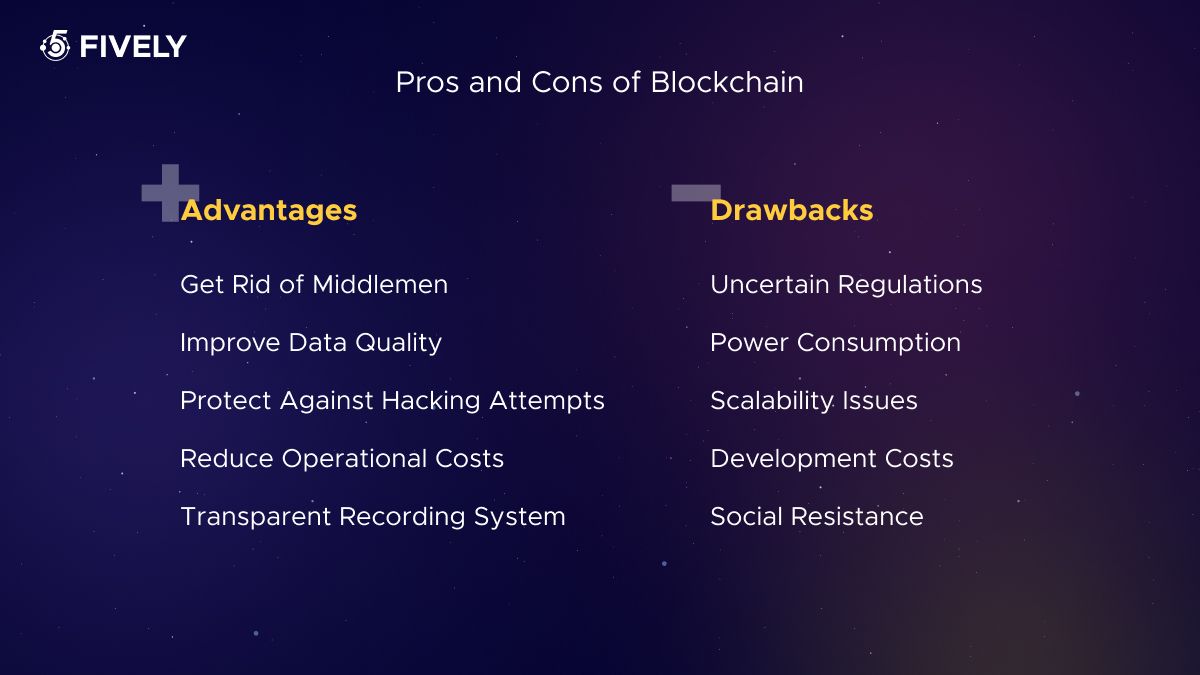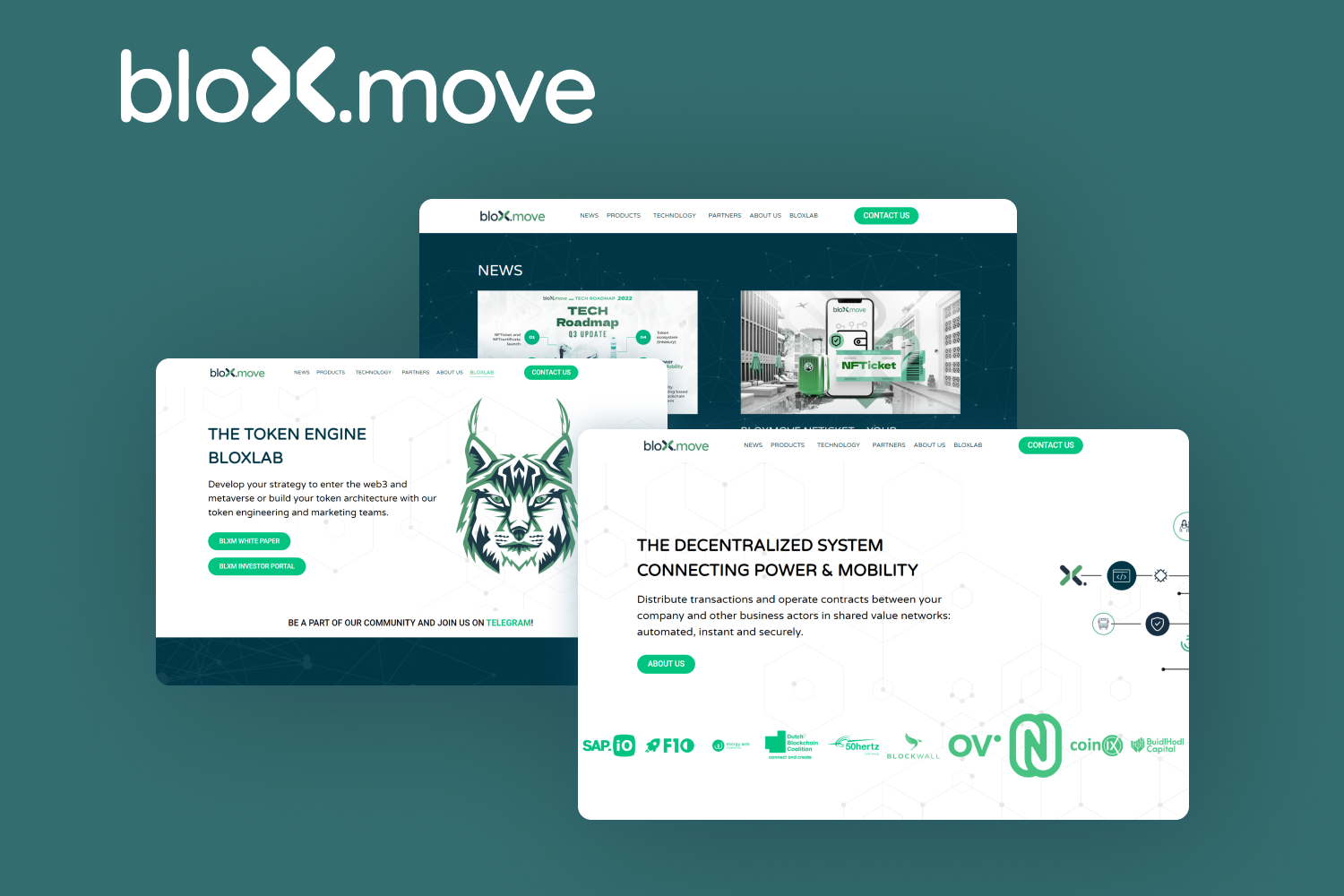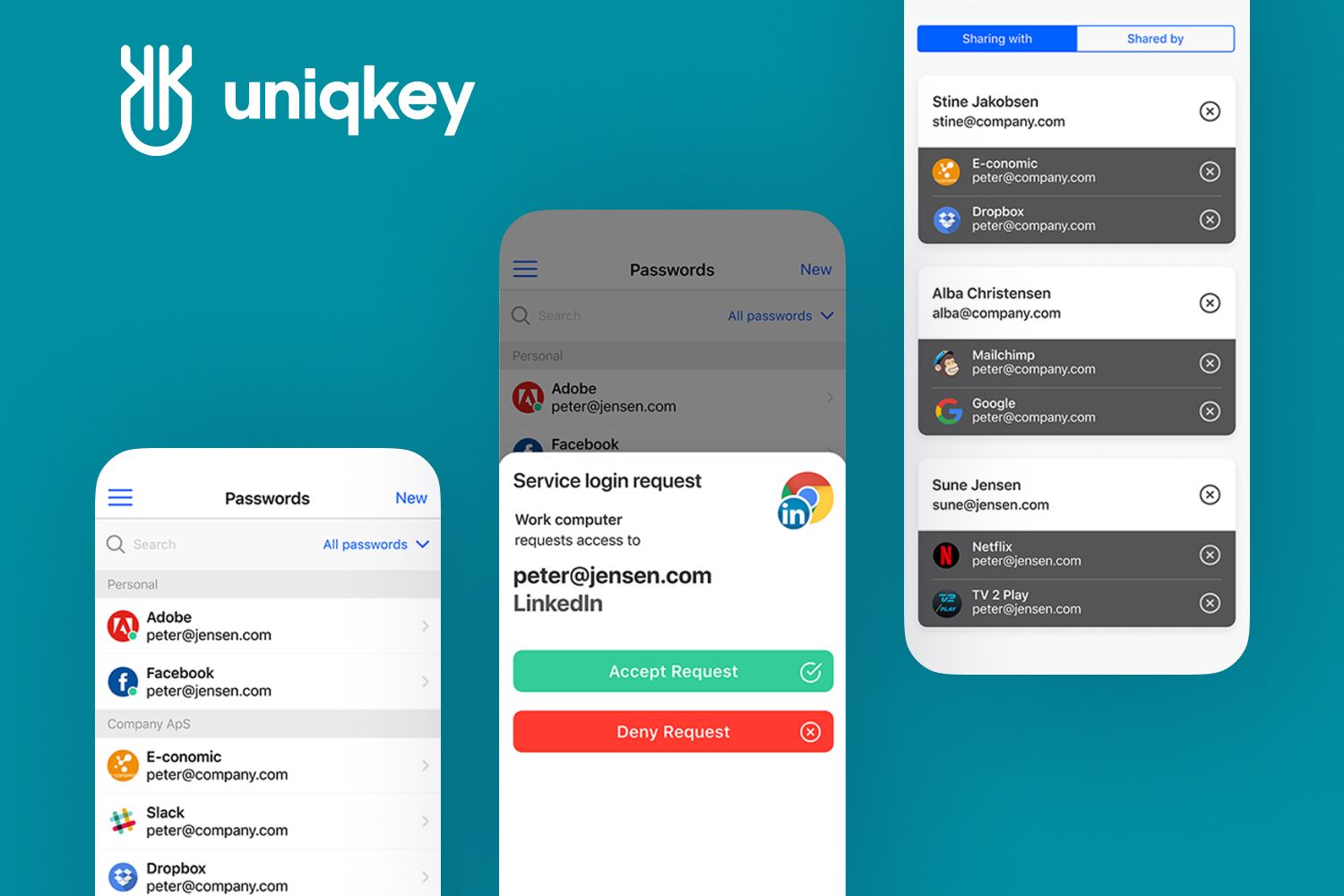Pros and Cons of Blockchain For Your Business
Blockchain technology is a great source of business transformation. Find out more about pros and cons of blockchain for business to make the right decision.
Blockchain has first emerged as a promising IT trend and it keeps growing its positions year by year. We haven’t stopped talking about it recently, as well as about the pros and cons of bitcoins, and the initial idea has given rise to many legends.
So, what does blockchain really mean for business?
Here we discuss the pros and cons of using blockchain for your business so that you could find the right answer and strategy for yourself.
Starting With the Basics: What is Blockchain?
What is blockchain? Let’s go simple. If you look at the word, you will get the idea that it is a chain of connected blocks. Every single block is a piece of data while the chain is a database.
In other words, blockchain technology represents a decentralized and distributed ledger that records economic transactions via a network of computers or nodes. Blockchain was created as an underlying technology for Bitcoin e-money by Satoshi Nakamoto in 2008.
In the blockchain, there is no central server to process the data. Thus, when any change happens within one block, this is reflected in all the rest of the blocks. Such decentralization as well as cryptographic hashing makes all the digital asset’s history in blockchain visible and highly secure. As a result, the idea of a data breach is failing, which is one of the main advantages of blockchain.

According to Statista, the global blockchain market is predicted to hit the mark of 40 bln U.S. dollars in size by 2025. Businesses love the technology for fast transactions and secure payments, though the list of its advantages isn’t limited to that. What benefits have blockchain technology, and are there any drawbacks? Let’s consider what pros and cons blockchain technology can give to your business.
Blockchain Pros and Cons: General Overview
Any technology always has its positive and negative aspects. So, what are the pros and cons of blockchain? We sorted out them in the table below:

Up until now, there are those who support this technology and claim its prosperous future and those who consider blockchain a risky venture. So, let’s take a closer look at the advantages and disadvantages of this technology to help you decide which one is vital for you and help you make your own opinion.
Top 5 Advantages of Blockchain Technology
What is the advantage of using blockchain technology? There definitely more than 1, and below have sorted out the top 5 blockchain advantages for your business.
1. Get Rid of Middlemen
Third parties connect us to payment or security services and share the responsibilities. However, the middlemen can be a risk factor since you may be mistaken in choosing them. Besides, they need their part of the pie cutting the income. Blockchain puts an end to these concerns, and this is one of the best advantages of blockchain for your business.

The distributed network verifies all the processes without a single center. So-called mining processing is automated and simultaneous which reduces transaction costs and neutralizes the risks associated with the trust in a middleman. All the processes happen within a single platform so that everyone involved can appreciate the same speed and transparency level.
2. Improve Data Quality
Businesses deal with huge amounts of data daily and are not immune to the intrusions of low-quality data that must be filtered out. Human-made mistakes are the implications of traditional processing.
Blockchain developers can make a system that will verify and filter every piece of information getting there. Such systems process a large amount of data. As a result, you will get high-quality data free from human mistakes.
3. Protect Against Hacking Attempts
Cybersecurity is a continuing general concern of digital enterprises. The loss caused by cyberattacks is projected to double in 2023 compared to 2018. Companies are increasing the number of open cybersecurity positions to protect themselves against fraud. Blockchain technology is a significant part of the protection strategy.

The blocks of data are stored around the network, so the possibility of getting control over it through a single entity is little to no. Due to the distribution, your system and data will stay resistant.
4. Reduce Operational Costs
With blockchain, your operational costs will be significantly lower, as this technology doesn’t require any centralized authority or servers to maintain operations. Also, it’s free from payment processing or any banking fees as it works with peer-to-peer transactions without third-party approval, and embeds documents, agreements, or transactions right within the system.
5. Transparent Recording System
All the payment transactions in the blockchain are recorded and stored in a public ledger, and anyone can view the details except the owners of the transactions. Blockchain users don’t need a bank intermediary’s permission or a special operation to be fulfilled to see any transaction details they need for any given period. Thus, blockchain technology enables users with much greater transparency than more traditional payment methods like debit or credit cards.
Disadvantages of Blockchain Technology for Small Businesses and Enterprises
Every coin has two sides, so now let’s look in detail at the top 5 drawbacks of blockchain technology you may meet while implementing it for your business needs.
1. Uncertain Regulations
The lack of regulations and unclear terms of use of this technology is the first disadvantage that should be considered by its potential investors. In some cases, it may lead to mistrust among users.
Let’s take, for example, the problem of ICO scams: any individuals or organizations can raise funds through the sale of tokens, but in fact, they may not have any real value. Plus, vague regulations concerning the use of blockchain make it difficult for governmental institutions to adopt this technology, as they can’t invest in a new form of financial data storage without clear agreements in this field.
Though, for many other organizations and companies this drawback is not so crucial, as the advantages of using blockchain technology are much higher for them.
2. Power Consumption
Speaking about the disadvantages of blockchain, power consumption is definitely on the list. In order to create such a complex distributed system of data blocks, and then enable their proper work, companies need to support a really huge number of nodes that constantly process various data and communicate. Of course, these operations demand significant energy consumption rates, which is quite costly.
The good news here is that blockchain technology never stops moving forward. Recently created protocols help to reduce consumption and cut down on maintenance costs, so organizations can stay more eco-friendly and cost-effective.
3. Scalability Issues
Blockchain technology is incapable of handling transactions on a mass scale, and this can be a drawback for enterprise organizations. As far as every transaction needs to be validated by the majority of the nodes to be approved and become a part of the chain, few transactions can be processed per second. This may also lead to network congestion, as well as high transaction costs.
4. Development Costs
Let’s be honest, the services of blockchain development can not be cheap, at least at this adoption stage anyway. In addition, the new technology adoption involves the legacy apps replacement and integration of the new system parts, which also costs a lot, and can be one of the cons of implementing blockchain. However, the exact costs depend on what type of solution you need. If you invest in it today, tomorrow you will be ahead of the competitors.
5. Social Resistance
It is obvious that the new technology can seriously upset the status quo. Blockchain isn’t merely about fast transactions and cryptocurrencies. Such a level of transparency and equal access implies integrity. For example, it can lead to a new format of elections on an institutional scale. Some governments are not ready for that, even without discussing the potential pros and cons of blockchain technology for them.
We can apply the same idea to an organization - your employees or divisions can be scared by the transparency level. The only thing to say here is that progress has an unstoppable nature and social conventions will have to evolve.
Drawing the Line
So, what is the best way of using (or not using) blockchain for your business strategy? Of course, this question has as many answers as many companies there are in the world. But still, adopting blockchain features and solutions is a fascinating experience and it’s among top IT trends nowadays. It opens up new levels of business, communications, technological paradigms, and new levels of revenue as well.
If you evaluated its advantages and disadvantages for your business and are ready to move on to something exciting, we are here to support you with our state-of-the-art blockchain solutions.
Feel free to contact us if you already have a product idea or need a custom software team to help you with professional advice, development, and launch of your product - we’ll be happy to help you!
Need Help With A Project?
Drop us a line, let’s arrange a discussion















